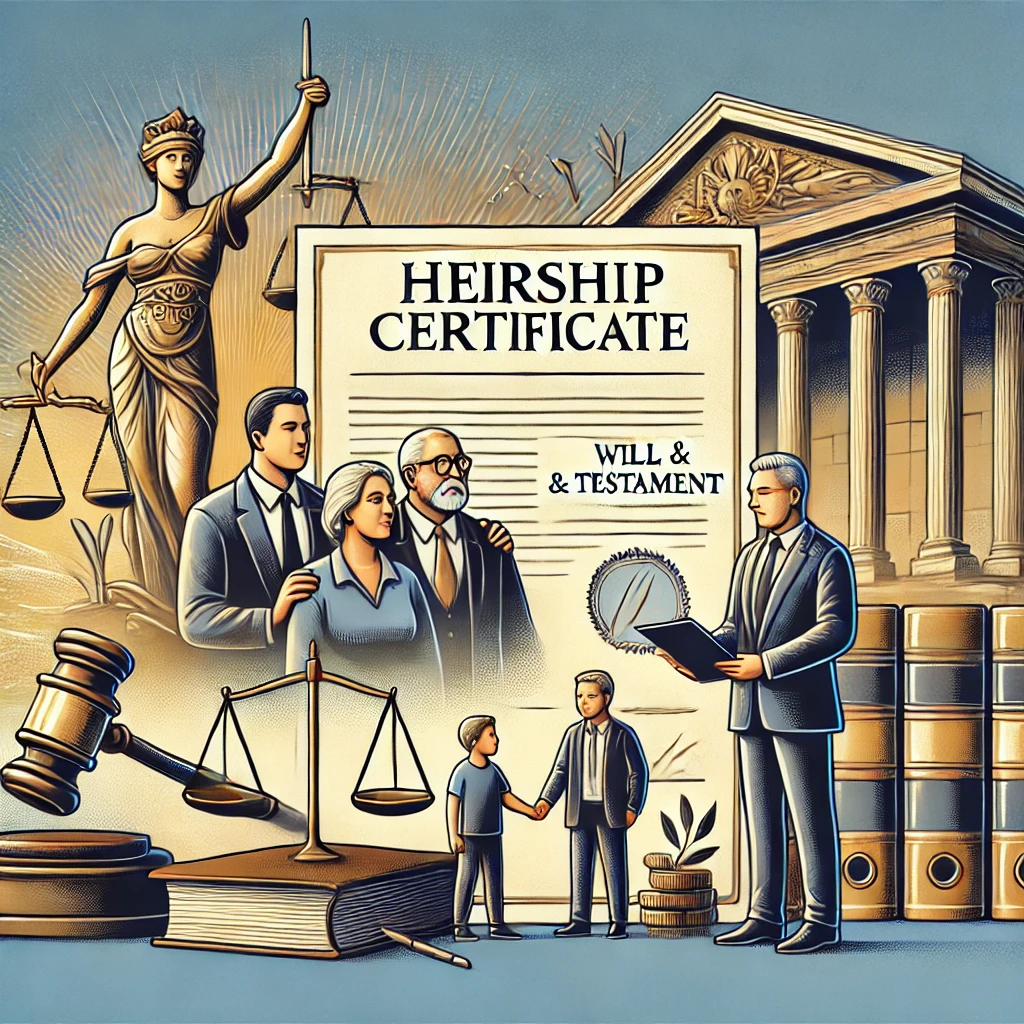Legal Heirship, Succession, and Probate Services

1. Legal Heirship Certificate
A Legal Heirship Certificate is issued to identify the rightful heirs of a deceased person. It is typically required for:
- Claiming pensions, insurance, bank accounts, or property.
- Transferring utility services or assets.
- Settling disputes related to inheritance.
Who Can Apply?
- Spouse (widow or widower).
- Children (including adopted children).
- Parents.
- Siblings (if no surviving spouse, children, or parents).
Procedure to Obtain It
- Apply at the Tehsildar's Office, Revenue Office, or Municipality.
- Submit necessary documents (Death certificate, Aadhaar card, relationship proof, etc.).
- After verification, the certificate is issued within a few weeks.
2. Succession in Indian Law
Succession in India follows two categories:
- Testamentary Succession: When a person dies leaving a valid will.
- Intestate Succession: When a person dies without a will.
Hindu Succession (Hindu Succession Act, 1956)
- Class I heirs (spouse, children, mother) inherit equally.
- If no Class I heirs, Class II heirs (father, siblings, etc.) inherit.
- 2005 amendments ensured daughters have equal rights in ancestral property.
Muslim Succession (Sharia Law)
- Governed by Muslim Personal Law (Shariat) Application Act, 1937.
- Quranic heirs (spouse, children, parents, siblings) get fixed shares.
- Customary wills (Wasiyat) allowed up to 1/3rd of estate unless heirs consent.
Christian & Parsi Succession (Indian Succession Act, 1925)
- Spouse and children inherit in specified proportions.
- If no direct heirs, parents, siblings, and extended family inherit.
3. Probate (Validation of a Will)
Probate is a legal process to validate a will in court before executing it.
When is Probate Required?
- In Chennai, Mumbai, Kolkata, if a Hindu, Buddhist, Sikh, or Jain leaves a will.
- For estates involving large assets or disputes.
Process of Probate
- File a probate petition in the district/high court.
- Court issues a notice to legal heirs to raise objections.
- If no objections, probate is granted.
- Executor administers the estate as per the will.
Key Differences
| Aspect | Legal Heirship Certificate | Succession Certificate | Probate |
|---|---|---|---|
| Purpose | Identifies legal heirs | Grants authority to collect debts & securities | Validates a will |
| Issued By | Revenue authorities | Civil court | High Court |
| Needed For | Pensions, utility transfers, bank accounts | Claiming debts, securities, shares | Executing a will |
| Applicable To | Both intestate & testamentary cases | Mostly intestate cases | Testamentary cases |
Conclusion
Legal heirship, succession, and probate ensure smooth transfer of property and wealth after death. The applicable law depends on the deceased’s religion, presence of a will, and place of jurisdiction. Consulting a lawyer or legal expert is advisable for complex cases.